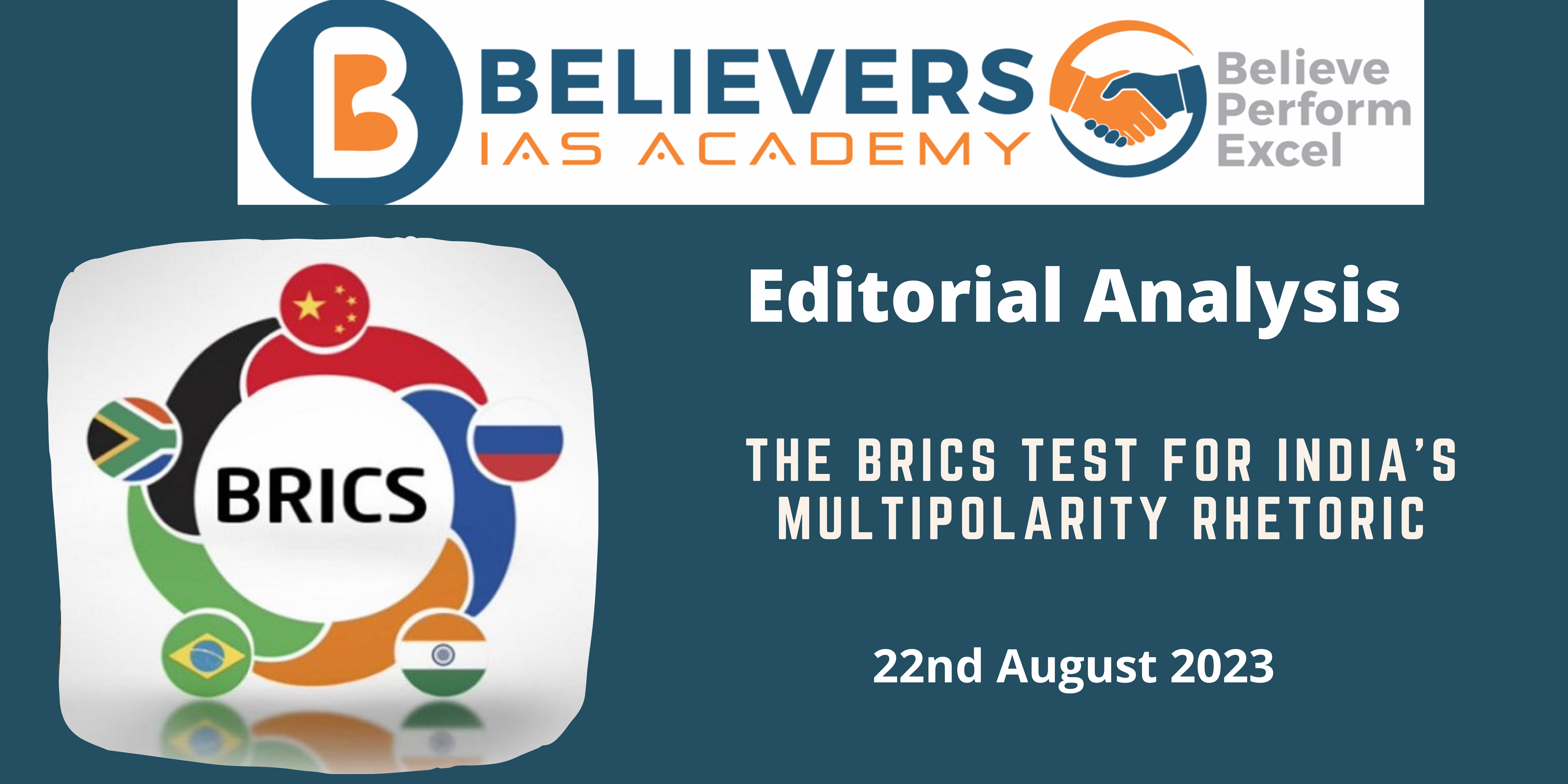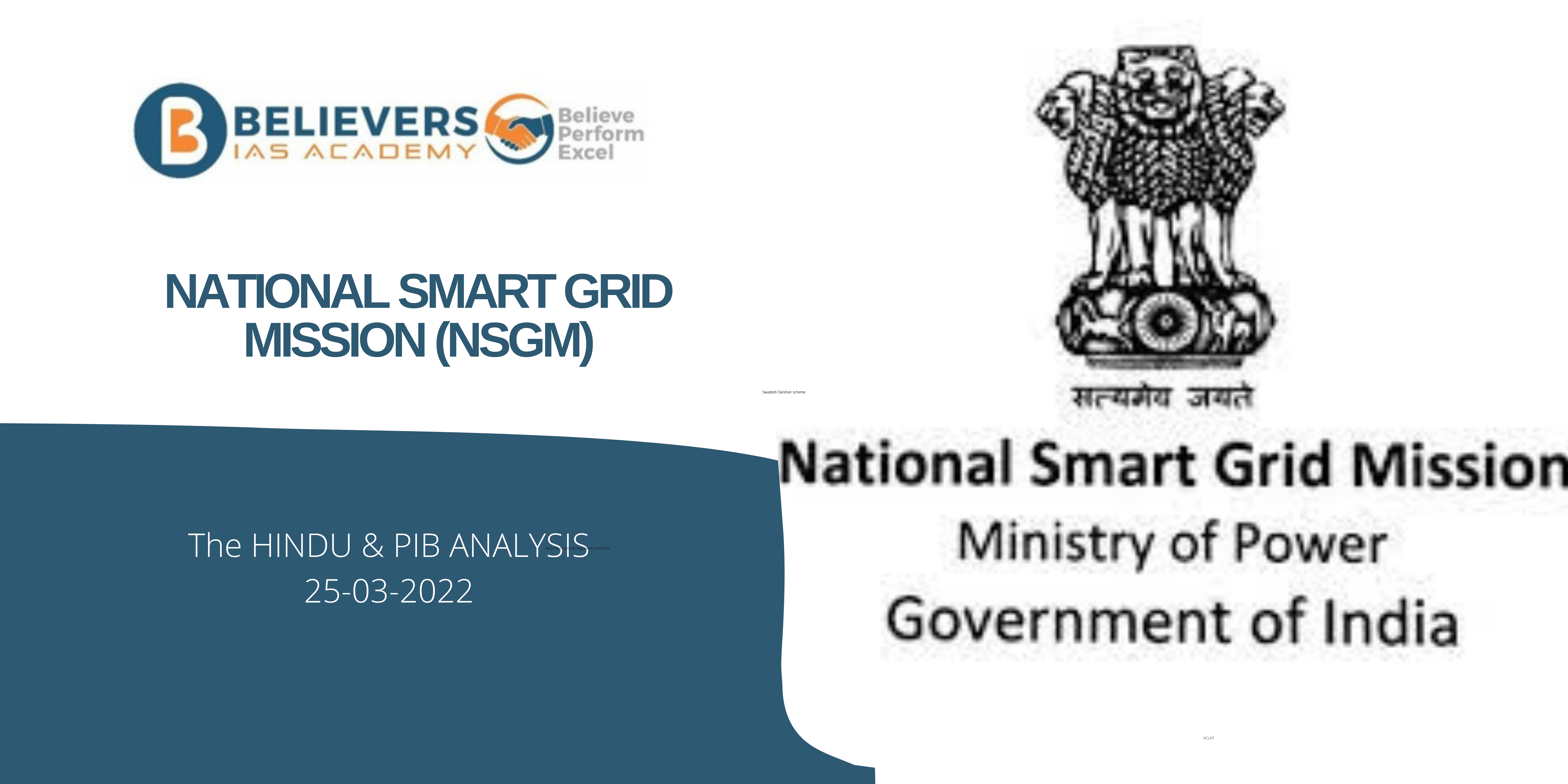The BRICS test for India’s multipolarity rhetoric
Context:
New Delhi’s resurgence in global geopolitics is evident as it chairs summits, maneuvers complex decisions, and seeks its spot in global governance. The upcoming BRICS summit in South Africa is poised to test Indian diplomacy and signal the direction of future geopolitics.
Relevance:
GS – 02 (Groupings & Agreements Involving India)
Prelims:
- BRICS
- UNSC
- Beijing Declaration
Mains Question:
- Discuss the role of BRICS in reshaping global geopolitics and its potential to address the challenges faced by the international system. (150 words)
Understanding BRICS:
Overview:
- BRICS stands for the alliance of the foremost emerging economies globally, namely Brazil, Russia, India, China, and South Africa.
- The term BRIC, initially referring to Brazil, Russia, India, and China, was coined by Jim O’Neill, a British Economist, in 2001.
- The formalization of this grouping occurred during the inaugural meeting of BRIC Foreign Ministers in 2006. Later, South Africa’s inclusion in December 2010 led to the adoption of the acronym BRICS.
BRICS’ Collective Impact:
- BRICS brings together the five largest developing nations, collectively representing 41% of the world’s population, 24% of the global GDP, and 16% of global trade.
Rotational Leadership:
- Leadership of the forum changes annually among the members, aligning with the sequence of B-R-I-C-S.
BRICS’ Noteworthy Endeavors:
- At the Sixth BRICS Summit in Fortaleza (Brazil) in 2014, a milestone was achieved as leaders signed the Agreement instituting the New Development Bank (NDB), headquartered in Shanghai, China.
Dimensions of the Article:
- BRICS’ Potential and Challenges
- Global Governance Imperfections
- Middle Powers and Geopolitical Uncertainty
- Democratic Imperfections in Global Governance
- India’s Complex Geopolitical Position
- Rising Blocs and India’s Stand
- Evaluating China’s Influence
- India’s Dual Goals
- Geopolitical Predicament
BRICS’ Potential and Challenges:
- While BRICS might not dramatically reshape the global economy, its capacity to create economic agreements and influence global geopolitics is doubted.
- Despite its shortcomings, BRICS could evolve into a potent entity shaping world politics, fueled by recent geopolitical shifts and challenges faced by the UN system.
- BRICS’ wider representation compared to the UNSC and G-7, though less than the G-20, holds significance for the international system’s future.
Global Governance Imperfections:
- The inadequacies and undemocratic nature of global governance structures are apparent. In this vacuum, forums like BRICS can step in, driven by the desire to be heard in the global arena.
- The increasing interest of countries in joining BRICS underscores the frustration felt by many nations in the global South regarding their status.
Middle Powers and Geopolitical Uncertainty:
- Amid global uncertainty, middle powers and regional heavyweights gravitate towards forums like BRICS to understand geopolitical trends, secure their positions, and influence geopolitics.
- The Ukraine conflict and China’s rise have revitalized BRICS, fostering discussions on enhancing global governance’s inclusivity.
Democratic Imperfections in Global Governance:
- While BRICS and SCO won’t guarantee democratic global governance, their discussions can spark dialogues on a more representative structure.
- Imperfect institutions reflecting current realities are preferable to an alienating monolithic system. Imperfection is acceptable in international politics, unlike hegemonic dominance.
India’s Complex Geopolitical Position:
- India faces intricate geopolitical choices. Its participation in BRICS, SCO, and the global South reflects dissatisfaction with post-World War II institutions. However, India’s alignment with the West also complicates its role.
- India’s balance between bridging divides and avoiding victimization in emerging geopolitical contests is challenging.
Rising Blocs and India’s Stand:
- With China and Russia forming blocs against the U.S. and its allies, India’s opposition to bloc politics aligns with its vision of multipolarity based on equity and inclusion. Despite its reluctance, India could be drawn into this dynamic.
Evaluating China’s Influence:
- As India pursues multipolarity and alternative global mechanisms, it must assess whether its actions inadvertently boost China’s rise. Strengthening non-Western forums aids China’s agenda, requiring India to navigate its influence carefully.
- Balancing China-centric and West-centric orders presents a dilemma.
India’s Dual Goals:
- India must prioritize promoting equitable global governance while safeguarding its national interests. While curbing Chinese influence in non-Western forums, India must also avoid alienating other global South countries that support China’s expansion efforts.
Geopolitical Predicament:
- India faces the challenge of asserting itself in non-Western forums like BRICS and the SCO while countering China’s growing influence. Simultaneously, it must address Western expectations in Eurocentric forums. This complex balance requires multifaceted strategies.
Way Forward:
India should maintain focus on inclusive global governance while ensuring that its actions don’t undermine its interests. Strategic moderation of China’s influence in non-Western forums, alongside nurturing relationships in the global South, is essential.
Conclusion:
Navigating the geopolitical currents requires India to navigate its course meticulously. Its role in non-Western forums, managing China’s ascent, and engaging with Western expectations define India’s diplomatic tightrope. Striking a balance amidst these intricacies will determine India’s contribution to shaping global geopolitics.




